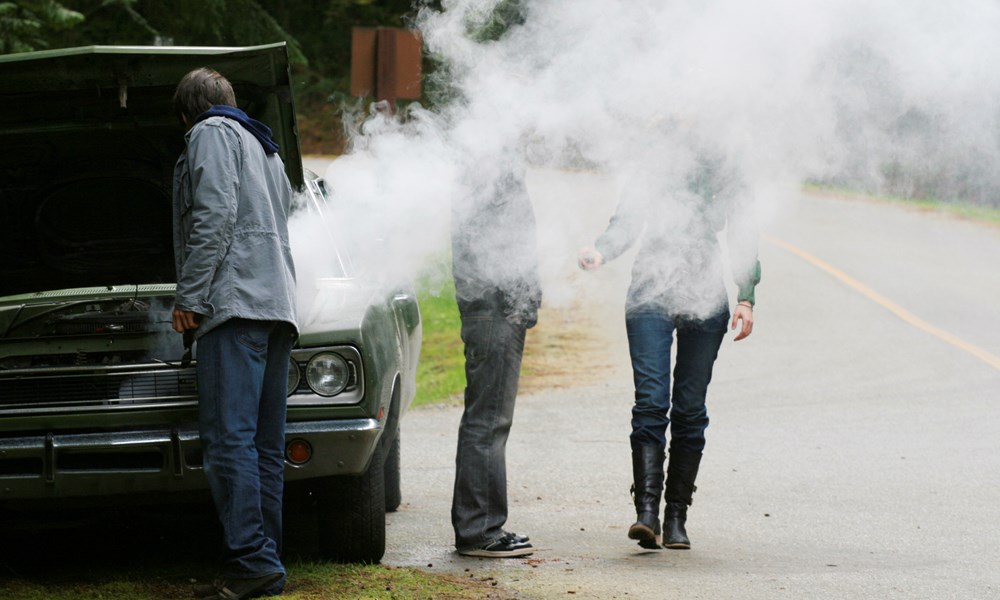Ask a Technician: Why can't I start my car in hot weather?

As the temperatures climb during the summer months, there is a chance that you might run into some problems when trying to start your car’s engine. When the hot weather heats up your engine, your car experiences a “hot start,” or an attempt to start the engine while it is already heated. Direct injection has made a quick end of most hot starting problems in cars and trucks, but it still happens on occasion for several reasons.
The most common reason for hot starting problems has to do with gasoline chemistry. During the winter months, oil refineries formulate gasoline in such a way as to increase volatility, which makes it easier to start your car in cold weather. But when spring rolls around, the chemistry which makes cars start easily in cold weather can make the gasoline too volatile. This can cause gasoline to turn from a liquid to a gas inside the fuel lines and/or fuel rail that leads to the injectors. Fuel cannot be pumped while in gas form, which starves your engine of the fuel it needs to start and run.
In most cases, this “vapor lock,” as it’s known, is easily cured by allowing the engine to cool down enough to turn the gas vapor back into liquid form. Then try to drive off that tank of gas and fill up again with fuel that hasn’t been formulated with winter in mind. But keep in mind that even though your fuel station likely replaces all its stock every week, the refineries may be feeding winter-formulated gasoline to them for weeks after the weather changes. For this reason, try to find the busiest gas station with a reputable brand name attached to it for the freshest batch of gasoline.
In extreme conditions, you may experience heat soak. This happens after you turn off your car, as the temperatures inside the engine rise for a brief period of time. This extreme heat can cause vapor lock, for the same reason as mentioned before (gasoline turning to vapor in the fuel lines). Vapor lock can occur even with fresh, warm weather formulated gasoline when your engine is heat soaked. If this happens, try opening the hood of your car for faster cooling of the heat-soaked under hood area.
Another possible cause of hard starting conditions in hot weather is an overburdened battery. A typical sign of this is a slow sounding starter motor. If this is the case, you’ll need to see a mechanic as soon as possible and have them test your battery and/or replace it. A weak battery will decrease the life of your starter and alternator—two expensive items you will certainly want to avoid replacing prematurely—so it is important to have this checked out.
Other extreme cases include a blown head gasket (usually from overheating), which can spell death to your engine if not caught early. Symptoms can be radiator steam, knocking, decrease in power and leakage of oil or coolant onto the ground.
Finally, if your engine is severely overheated, your pistons may expand and create undue resistance and scuff against the cylinder walls, beginning a process known as seizing. This is a very rare occurrence, but if it happens to you, you should seek professional advice from your service advisor as soon as possible.
In short, the best way to keep your vehicle starting easily in the summer is to buy fresh gasoline regularly and keep your car well maintained year-round.
